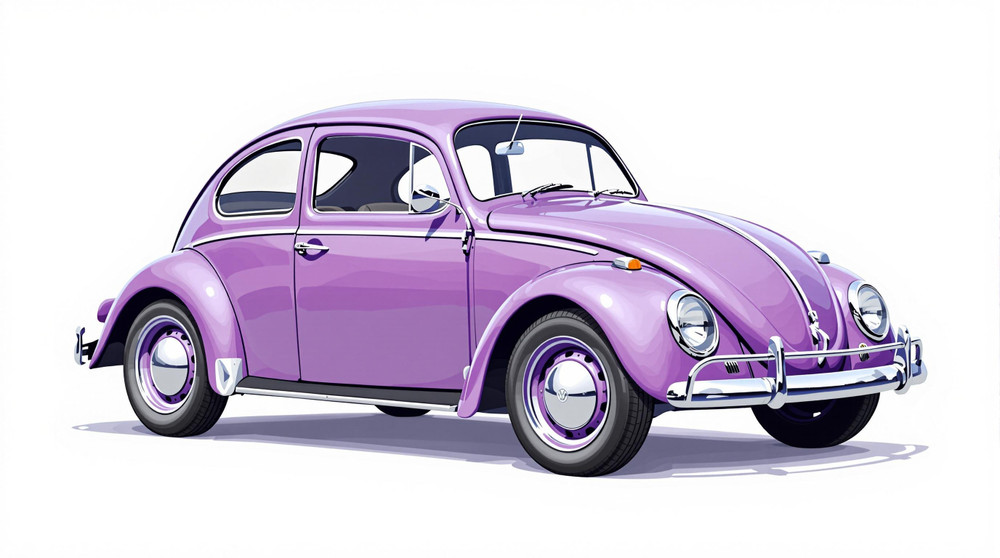Image of 1953 Volkswagen Beetle, Note: These illustrations use artistic license and may differ from actual historical models.
Performance Metrics
Fundamental Metrics
Emotional Appeal
MMP Rating
| Engine Specifications | |
|---|---|
| Engine Options: | Air-cooled, rear-mounted, flat four-cylinder |
| Displacement Range: | 1.1 L (1131 cc/69 in³) |
| Horsepower Range: | 25-30 hp |
| Torque: | 49 lb-ft |
| Compression Ratio: | 6.6:1 |
| Ignition System: | Battery ignition system |
| Cooling System: | Air-cooled |
| Performance Specifications | |
| 0-60 Time: | 35 seconds |
| 1/4 Mile Time: | Not available |
| Top Speed: | 68 mph |
| Transmission and Drive | |
| Drive Type: | Rear-wheel drive |
| Transmission Type: | 4-speed manual |
| Fuel and Efficiency | |
| Fuel System Type: | Carburetor |
| MPG: | 28-32 mpg |
| Dimensions and Brakes | |
| Brakes: | Drum brakes |
| Wheelbase: | 94.5 in |
| Weight: | 1,600 lbs |
Note: Specifications for classic cars are given to the best of our ability, considering the limited and variant data available.
Introduction
The 1953 Volkswagen Beetle is not just a car; it's an emblem of post-war resilience and design ingenuity. Born from the ashes of World War II, the Beetle, or 'Bug' as affectionately known, was a product of the Volkswagen company, which translates to "people's car" in German. The Beetle's rounded silhouette and air-cooled rear engine became symbols of economical and reliable transportation across the globe. A unique fact that often surprises enthusiasts is that the Beetle's design was initially conceived by Ferdinand Porsche under a directive from Adolf Hitler to create a car for the masses, yet it transcended its origins to become a beloved icon of peace and counterculture.
Design and Innovation
The 1953 Volkswagen Beetle's design is instantly recognizable with its curvaceous lines and friendly demeanor. The exterior styling exuded simplicity and functionality, with a rounded roofline, pronounced fenders, and running boards that invited you into its cozy interior. Inside, the Beetle was unpretentious yet charming, featuring durable materials that could withstand daily use. Technologically, it boasted an innovative air-cooled flat-four engine that was both efficient and easy to maintain. Color options ranged from subdued pastels to vibrant hues, with Horizon Blue being a particularly popular choice. The most iconic body style was the two-door sedan, which captured hearts with its practicality and character.
Historical Significance
The 1953 Beetle carved out a new niche in automotive history by making car ownership accessible to a broader audience. It stood apart with its rear-engine layout, which improved traction and allowed for a spacious interior despite its compact size. The Beetle's influence is seen in countless small cars that followed, proving that good things indeed come in small packages.
Performance and Handling
Performance-wise, the 1953 Beetle wasn't about breakneck speed; it was about dependability. With a top speed around 68 mph and modest acceleration, it wasn't going to win drag races but provided consistent performance. Handling was nimble due to its lightweight construction, making it adept at navigating through city streets or cruising on country roads. Driving a Beetle was an experience filled with character—from the distinctive hum of its air-cooled engine to the simple joy of maneuvering such an agile vehicle.
Ownership Experience
The Beetle served many roles—from a frugal daily driver to a quirky show car or even as a platform for racing in modified forms. Its reliability was legendary; maintenance could often be performed by owners with minimal mechanical knowledge. This ease of repair contributed significantly to its popularity and enduring legacy.
Fun Facts
The 1953 Volkswagen Beetle has been owned by celebrities, featured in numerous films like "Herbie," and even held records for longevity—some Beetles have clocked over 300,000 miles on their original engines! Criticisms were few but typically centered around its modest power output and heating system challenges.
Collector's Information
Today, the value range for a well-preserved 1953 Beetle can vary widely but generally falls between $15,000 to $30,000 depending on condition and originality. While exact production numbers for that year are elusive, it's estimated that tens of thousands were produced. As vintage Beetles continue to be sought after by collectors, prices have steadily appreciated over time.
Conclusion
In summary, the 1953 Volkswagen Beetle is much more than just another classic car—it's a cultural icon that represents simplicity, reliability, and joy on four wheels. Its legacy endures not only in the hearts of enthusiasts but also in every compact vehicle inspired by its revolutionary design.
1953 Volkswagen Beetle Catalog of Parts
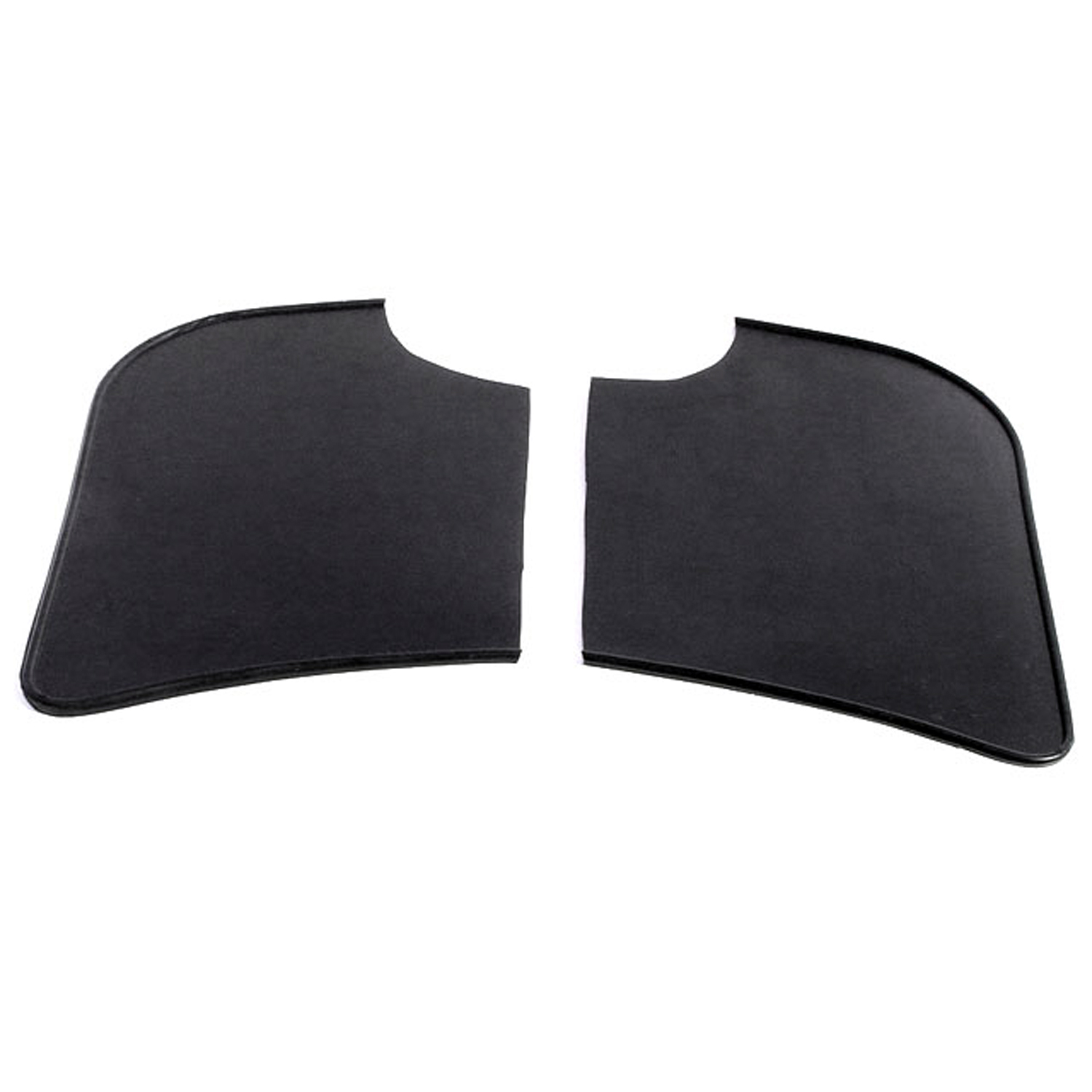 1953 Volkswagen Beetle Gravel Shields. Molded flat without metal backing plates-FS 40Gravel Shields. Molded flat without metal backing plates. Apply with contact cement. 7-5/8" long X 5-5/8" wide at top. Pair
1953 Volkswagen Beetle Gravel Shields. Molded flat without metal backing plates-FS 40Gravel Shields. Molded flat without metal backing plates. Apply with contact cement. 7-5/8" long X 5-5/8" wide at top. Pair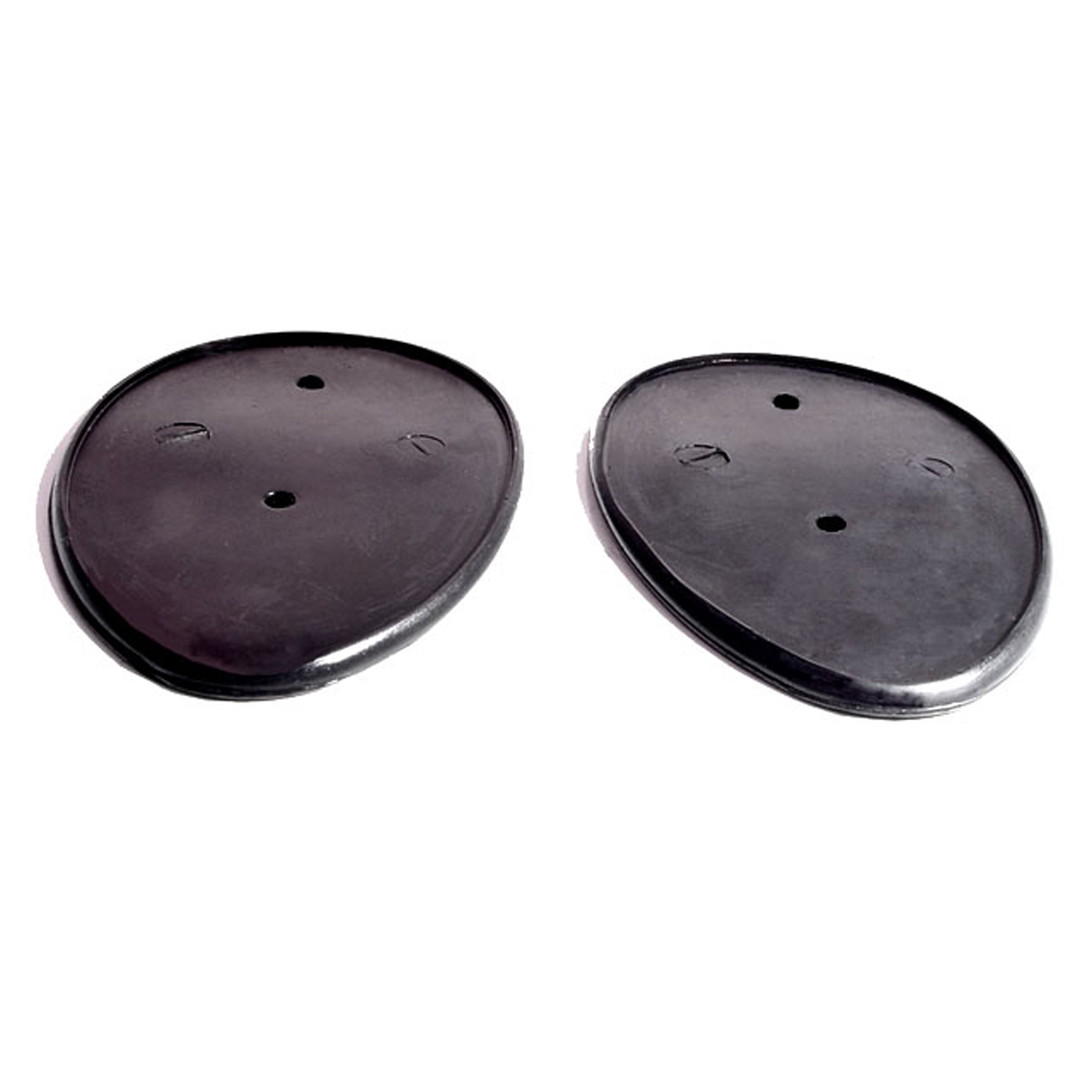 1953 Volkswagen Beetle Tail-light Pads. Exact reproduction. 3-7/8" wide X 6" long-MP 1500Tail-light Pads. Exact reproduction. 3-7/8" wide X 6" long. Pair
1953 Volkswagen Beetle Tail-light Pads. Exact reproduction. 3-7/8" wide X 6" long-MP 1500Tail-light Pads. Exact reproduction. 3-7/8" wide X 6" long. Pair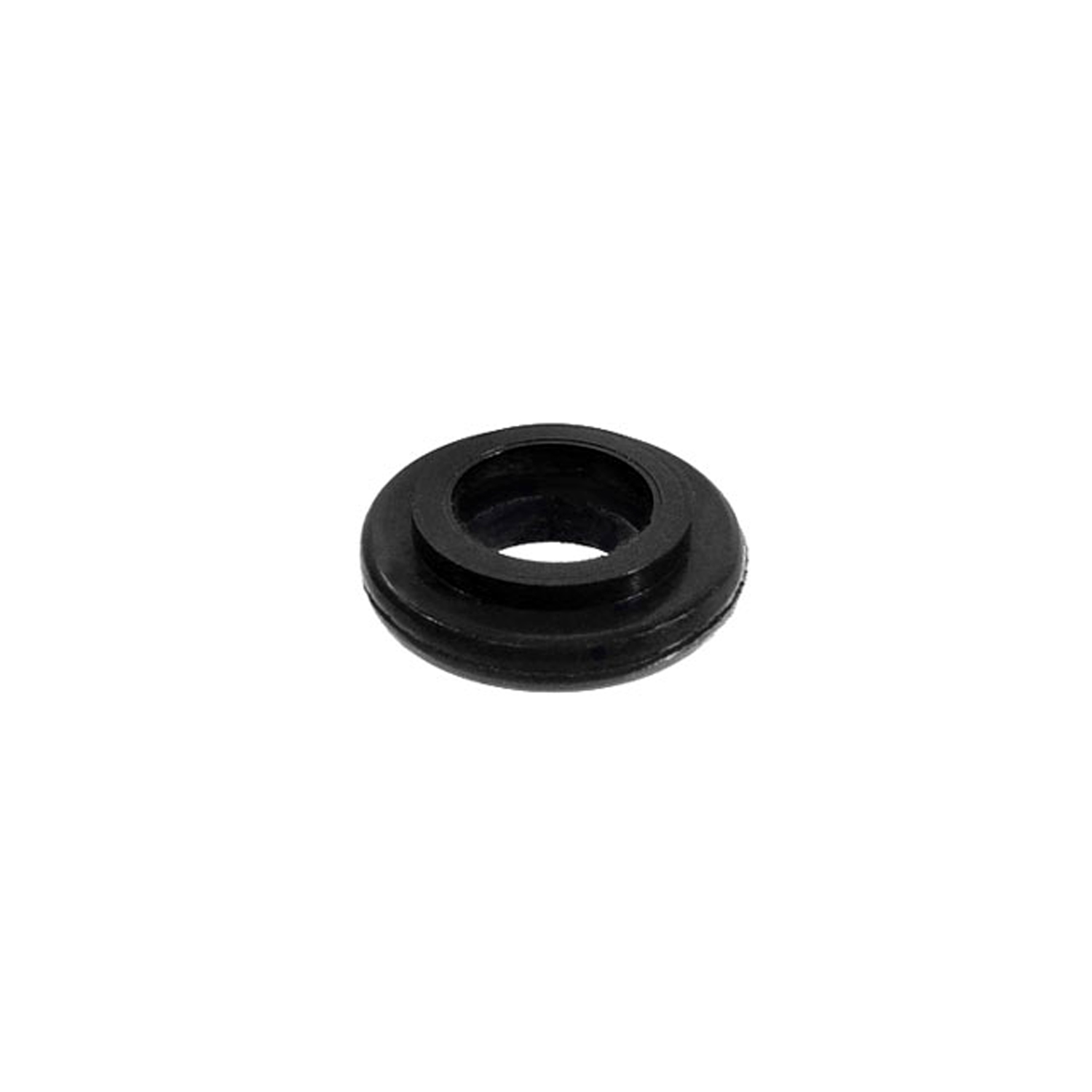 1953 Volkswagen Beetle Oil Cooler Seal. 7/16" I.D., 7/8" O.D. Each-RP 8-BOil Cooler Seal. 7/16" I.D., 7/8" O.D. Each
1953 Volkswagen Beetle Oil Cooler Seal. 7/16" I.D., 7/8" O.D. Each-RP 8-BOil Cooler Seal. 7/16" I.D., 7/8" O.D. Each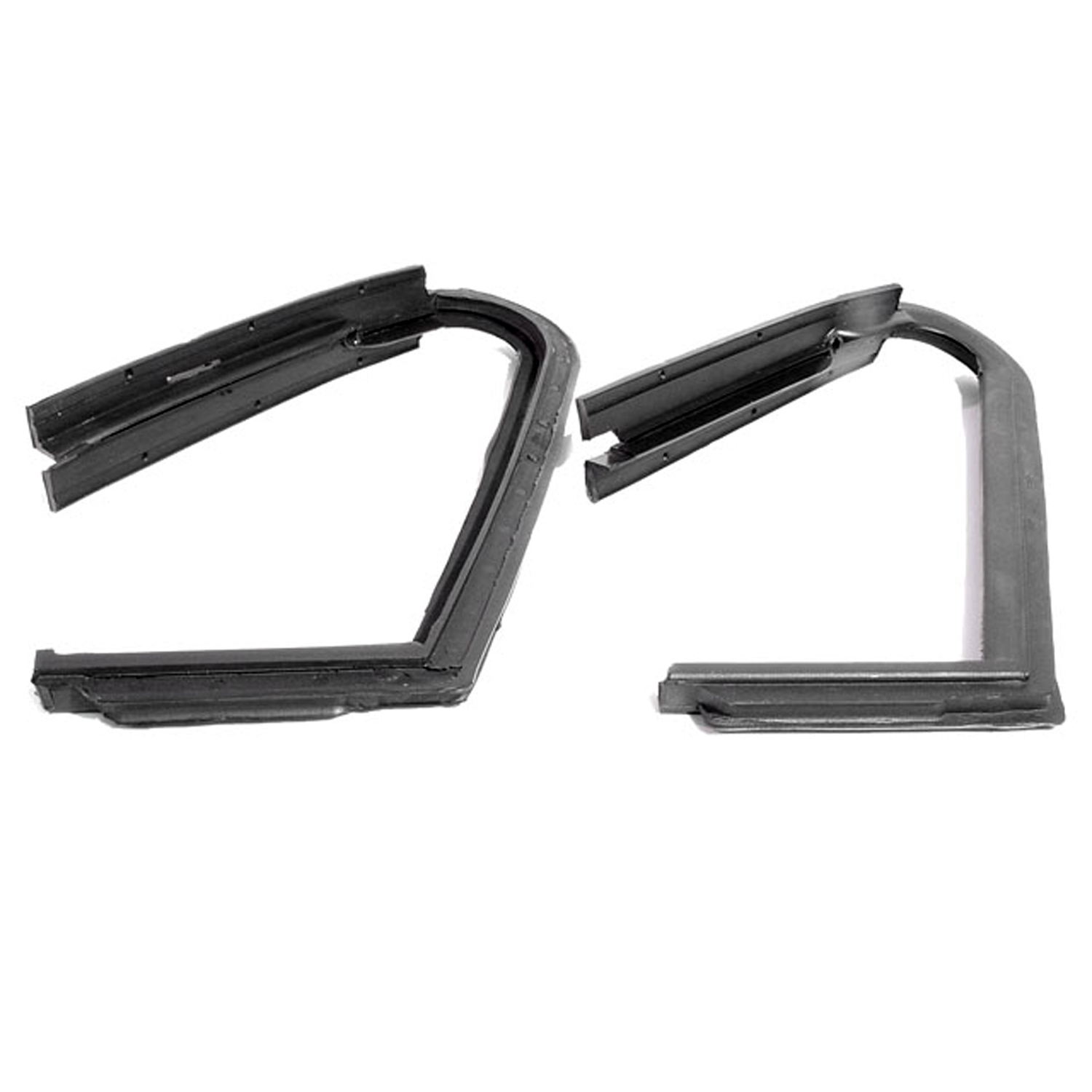 1953 Volkswagen Beetle Front Vent Window Seals, for Convertibles-WR 9800Front Vent Window Seals, for Convertibles. Molded in proper shape. Pair
1953 Volkswagen Beetle Front Vent Window Seals, for Convertibles-WR 9800Front Vent Window Seals, for Convertibles. Molded in proper shape. PairWhy Choose Metro?
For over 100 years, Metro Moulded Parts has been the pinnacle of quality in classic car restoration parts. Our commitment to precision and authenticity in every component ensures a perfect fit and an OEM-level appearance.
- Expert Craftsmanship & Quality: Each part is a testament to our dedication to reliability and perfection, crafted from original designs and thoroughly tested.
- Advanced Technology: We use cutting-edge techniques to create flawless, long-lasting parts that surpass others in performance.
- SuperSoft Sponge – The Ultimate Door Seal: Not only are our door seals 30% softer than competitors', but they're also guaranteed to never leak. They effectively reduce wind and road noise, enhancing your classic car's comfort and driving experience.
- Proudly American: Our parts are a product of American craftsmanship, made in the USA with a spirit of excellence and heritage.
- Unrivaled Warranty: We back our products with a 30-year industry-leading warranty, a testament to our confidence in their quality.
Join us in preserving the legacy of classic cars with parts that are crafted for perfection, not just made.

